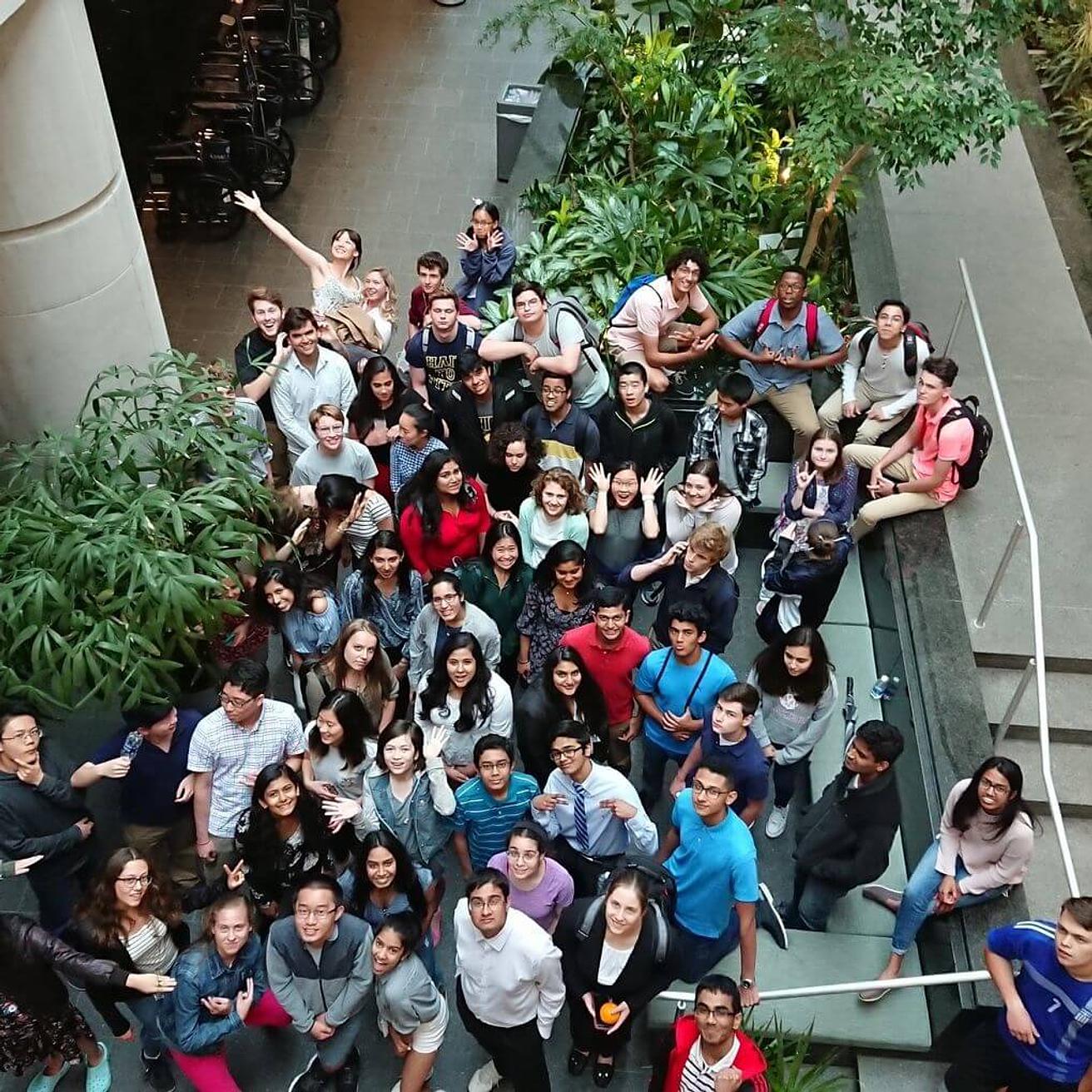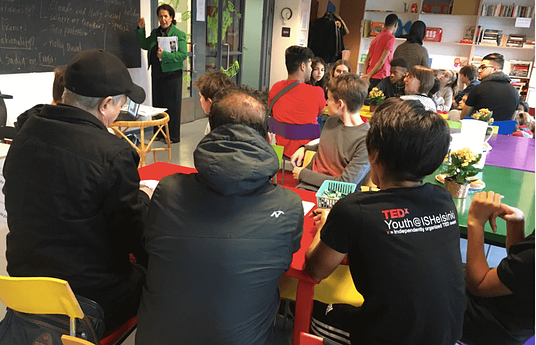With so much shifting in the educational landscape in the past few months, from face-to-face school, to distance learning, and back again, we will admit to being caught off guard and ill-equipped to tackle the subject of the recent protests in the US. The protests came up in conversations in our classrooms before we could properly prep any substantive or meaningful lessons directly addressing police brutality or racial inequity. June is traditionally pride month and a time to teach, learn, and celebrate stories from the LGBTQ+ community, so addressing racism had taken a little bit of a back seat in our planning. However, we are never one to waste teaching opportunities and these global protests are a great reminder of the intersections of inequalities and how teaching for equity and empathy needs to address all forms of oppression.
As educators teaching the humanities and social sciences in international settings, we are often asked to walk a fine line between exposing our students to current events and cultivating global citizenship, while being respectful of the diversity of political, cultural, class, and religious backgrounds that make up our school community. While no educator wishes for students to blindly adopt their views and opinions on topics, we do strive to provide students with reliable information about the world around them and the language to discuss and reflect on what they’re learning about the world. We hope to give them the skills to analyze the causes of the world’s injustices and the toolkit and space to think critically and innovatively about how they can be agents of social change in the world. We hope these skills will serve them now when talking about the current protests but will be useful in the future when addressing other forms of oppression when and wherever our students encounter them, as well as help them reflect on their privileged place in the world and how their, and our own, privilege comes at the expense of others.
Lucky for us, there are lots of great organizations and tools already out there to help us educators have these challenging conversations with our students and teach for social justice.
Learning from the Past
This is not the first time people have stood up in the face of injustice and exercised their right to protest. Facing History and Ourselves offers educators a huge variety of tools and resources to help students identify and stand up to racism and other forms of bigotry and draws heavily on the civil rights movement and the history of racism in The US as well as fascism in Europe.
As a resource for educators, older students, or anyone looking to make sense of the events today within a historical framework, Timothy Snyder’s On Tyranny asks readers to take responsibility for the face of the world. He claims the symbols of today enable the reality of tomorrow, whether that symbol is a photo of the Lincoln memorial covered in armed, masked US soldiers or a Minneapolis police officer kneeling on an African American man’s neck. Snyder encourages readers to notice the swastikas and other signs of hate that appear around us and to not look away or get used to them. He reminds us that it is all our responsibility to not ignore, but remove them and set an example for our students and others to do so too.
Making Sustainable Change Happen
Teaching Tolerance has been providing teachers with a range of excellent resources to tackle social justice issues for decades. They have recently launched a collection that explicitly links to the current protests and teaching about police violence, race, and racism that aims to not only encourage discussion amongst students around implicit bias, oppression, and privilege but also empower students to act to make society more just.
Inspire Citizens resources and frameworks help schools to create schoolwide programs around global and intercultural competence. The Global Impact Schools Self Study helps schools to identify steps to becoming more inclusive and action-oriented. The Empathy to Impact curricular approach and resources help link schools’ existing curriculum to issues that we want students to develop compassionate empathy for and be moved to sustainable and impactful action. The Student Impact Profile also provides a competency framework that helps to explicitly develop the skills and competencies necessary to take sustainable action and have a widespread impact on our communities. Inspire Citizens’ work helps communities to see that schools can be places of positive impact on issues like diversity, intercultural competence, inclusion, and community sustainability and that all communities can be using schools as places of positive change.
To paraphrase Ibram X. Kendi from his wonderful book, How to be an Anti-Racist, there is no such thing as being not a racist. There is racist and there is anti-racist. If you sit back and do nothing in the face of racism (or for that matter, any other form of oppression), you are actively contributing to the racist (or patriarchal or hetronormative, etc) hegemony. It is only when we challenge the power structures and policy agendas that reproduce these inequalities that we can truly call ourselves anti-racists and agents for positive social change.
As educators, we have a responsibility to our students to not shy away from these difficult conversations, even if they make us uncomfortable. We must prepare ourselves with the excellent tools for professional learning and resources that are out there and stand up and tackle injustice head on whenever it appears in our classrooms.
Additional resources:
As educators, we are constantly adapting and evolving to meet the needs of students today. This sometimes means taking a step back to educate ourselves first in order to best equip our students with reliable information. The resources below encourage educators to #dothework and lead by example.
1. Rachel Cargle’s free 30-day #DOTHEWORK Antiracism course
2. 5 Tips for Being an Ally by Francesca Ramsey (4-minute video)
3. What is Antiracism? An interview with author Ibram X. Kendi (5-minute video)
If you have any feedback for us on how we could do better or if you have an innovation to share please email our Head of Media, Mariah O’Mara at mariahomara@hundred.org.
About the Authors:
Ellen Heyting is a HundrED Innovator, an Australian Educational Researcher, and International High School teacher based in Helsinki with a passion for bringing innovation into education as a tool to unite people, nations and cultures for peace and a sustainable future.
Aaron Moniz is the Co-Founder of Inspire Citizens and a TeachSDGs Ambassador. He works with schools to link the world's greatest needs to applied learning and holistic education and move teachers, programs, and schools towards designing impact projects through best practice professional learning and the whole school deep implementation approaches.




